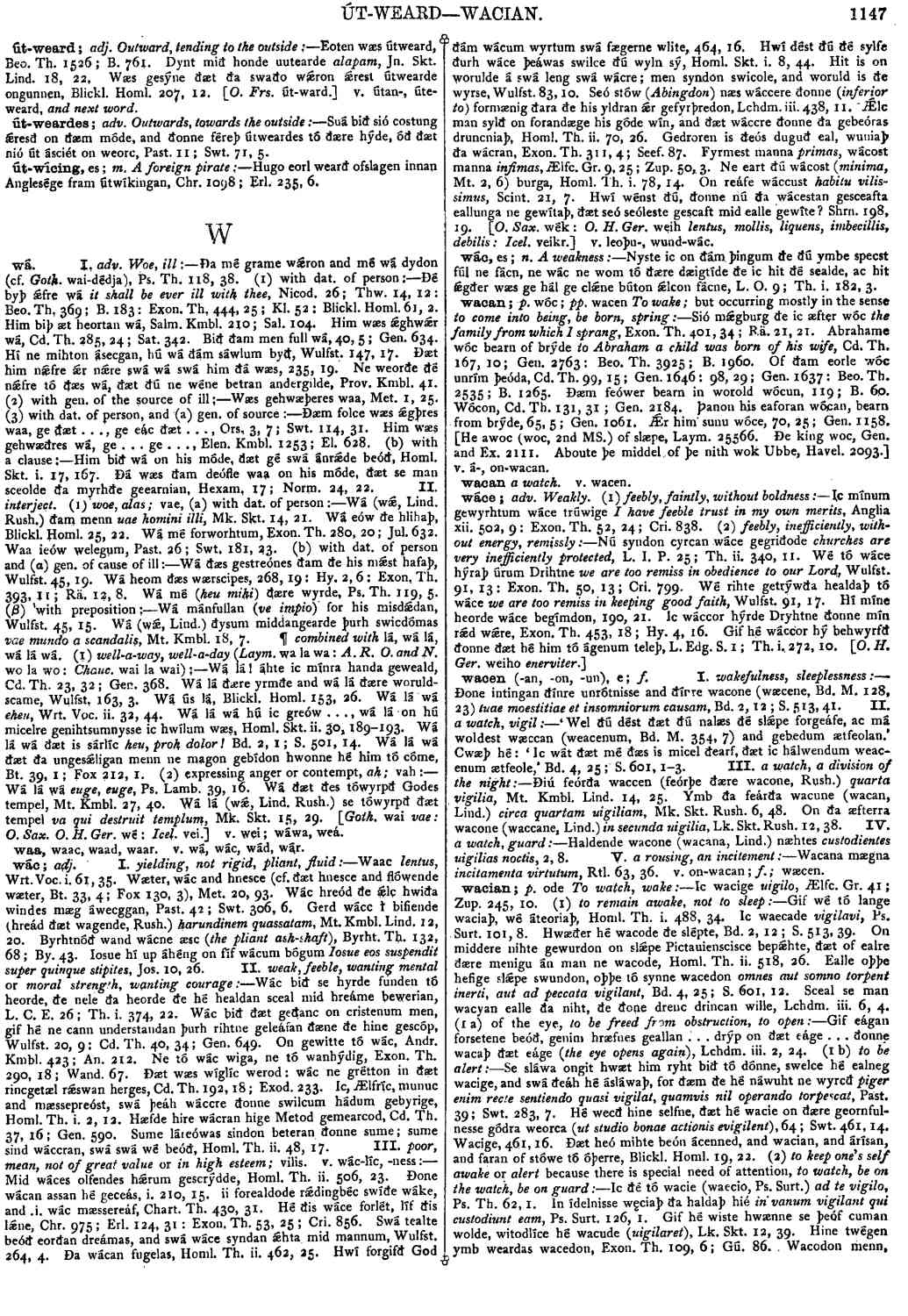wáce
- adverb
-
Ic mínum gewyrhtum wáce trúwige
I have feeble trust in my own merits,
Anglia xii.- 502, 9: Exon. Th. 52, 24; Cri. 838.
-
Nú syndon cyrcan wáce gegriðode
churches are very inefficiently protected,
- L. I. P. 25; Th. ii. 340, 11.
-
Wé tó wáce hýraþ úrum Drihtne
we are too remiss in obedience to our Lord,
- Wulfst. 91, 13: Exon. Th. 50, 13; Cri. 799.
-
Wé rihte getrýwða healdaþ tó wáce
we are too remiss in keeping good faith,
- Wulfst. 91, 17.
-
Hí míne heorde wáce begímdon,
- 190, 21.
-
Ic wáccor hýrde Dryhtne ðonne mín rǽd wǽre,
- Exon. Th. 453, 18; Hy. 4, 16.
-
Gif hé wáccor hý behwyrfð ðonne ðæt hé him tó ágenum teleþ,
- L. Edg. S. 1; Th. i. 272, 10.
Bosworth, Joseph. “wáce.” In An Anglo-Saxon Dictionary Online, edited by Thomas Northcote Toller, Christ Sean, and Ondřej Tichy. Prague: Faculty of Arts, Charles University, 2014. https://bosworthtoller.com/34184.
Checked: 0